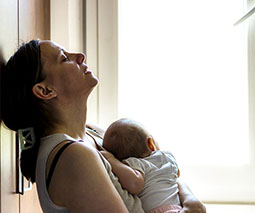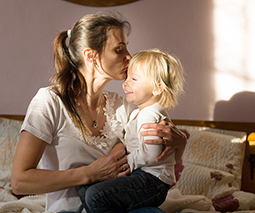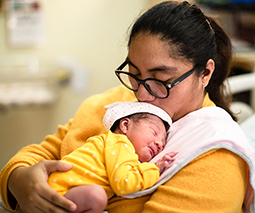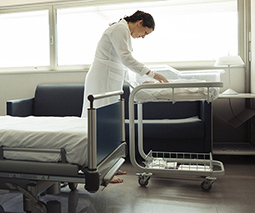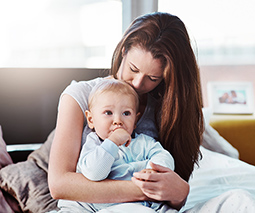Alanis Morissette: How she plans to prevent postnatal depression

Alanis Morissette has been through postnatal depression twice, so she oughta know a few things about it. (Sorry, I’ll leave the Alanis puns there.)
In an interview with American publication SELF, Alanis has opened up about motherhood, pregnancy and postnatal depression.
“I would just wake up and feel like I was covered in tar,” she explained, later adding that during depression “everything feels heavy” – an apt description for what PND can feel like, and a reminder that it can affect us physically as well as mentally.
Alanis says that, as someone who’d experienced depression before, the feeling was familiar when it came after having her first baby.
Still, she gave it almost a year and a half before reaching out for help, believing that if she could “stick it out” it would disappear. She says that this was untrue, and she had to take that step to recover.
She experienced PND after having her second child, too, seeking help about four months after noticing the signs.
What she’s doing different
Now, Alanis is pregnant with her third child and is on guard for the depression that might come for her again.
She says that this time, she won’t wait months or years to ask for help. “This time I’m going to wait four minutes,” she says.
Despite this determination, Alanis says she’s not convinced she’ll take the steps she needs to take. And so, she’s set up some pretty strong support around herself.
“I have said to my friends, I want you to not necessarily go by the words I’m saying and as best as I can, I’ll try to be honest, but I can’t personally rely on the degree of honesty if I reference the last two experiences,” she explains.
The article speaks of seven support people that Alanis has lined up to look out for her mental health, including her doctor and midwife.
She’s certainly not just crossing her fingers and hoping for good luck; she’s taking on her mental health risk with the strength of the awareness she now has.
Can postnatal depression be prevented from happening again?
While none of us can really know whether we’ll experience postnatal depression, there are steps you can take to reduce the risk. These include:
- Set up a support network. Be like Alanis and talk to your trusted medical team, friends, partner and family about the ways they can help you and keep an eye on you.
- Read up. Inform yourself early about postnatal depression: what it feels like, who you can turn to, and how to find help.
- Consider your lifestyle. There’s a range of research confirming that a healthy diet and regular exercise are powerfully helpful for mental health. This can be hard to maintain when you’re pregnant and have a newborn, but think about what you can do.
- Had postnatal depression before? Those who have experienced the condition before may be in a position to recognise their signs and symptoms early. Everyone can feel PND in different ways, so think about what it was like for you last time and what you’ll do if this begins again.
- Be kind to yourself. Understand that it’s okay to ask for help and to speak up if things aren’t going well.
For more information or if you need help, please call PANDA or Beyond Blue.
Megan Blandford is a freelance writer and author of I’m Fine (and other lies), a story of motherhood and postnatal depression.

